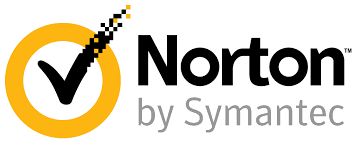Loan Overview:
The 7(b) loans provide up to $2 million in assistance with an interest rate of 3.75% for-profit companies and an interest rate of 2.75% for non-profits. The loan terms range up to 30 years, and there are no upfront fees or early payment penalties.
Loan information:
- Payments start 12 months after the date of the contract
- Funds can be used to business expenses such as pay sick leave for employees who are unable to work due to a direct effect of COVID-19, payroll, materials, rent or mortgage payments, repaying outstanding obligations
Eligibility requirements:
Loans for any business that is affected by COVID-19, has less than 500 employees and was in operation before February 1, 2020, is eligible to apply.
Those interested in applying, must apply before December 31, 2020
For more related questions on the SBA Disaster loan, visit our FAQ.
This is your typical SBA loan, but tailored specifically to the COVID-19 crisis, which assists small businesses in covering operating expenses. A business can use 7(a) loan proceeds to pay-off a 7(b) Disaster loan; however, any portion of the 7(a) funds that are used to pay-off a 7(b) Disaster loan are not eligible to be forgiven under the 7(a) program
Loan Overview:
- The PPP provides small businesses with funds to pay up to 8 weeks of payroll costs, costs related to group health care benefits during periods of paid sick, medical or family leave, and insurance premiums. The fund can also be used to pay interest on mortgages, rent and utilities and interest on payments on any other debt obligations that were incurred before February 15, 2020.
- Payroll costs are capped at $100,000 on an annualized basis for each employee
- A business can apply for a loan of 2.5 average monthly payroll costs up to $10million
- Use the below methodology to calculate the maximum amount you may be able to borrow:
-
- Step 1: Aggregate payroll costs from the last twelve months for employees whose principal place of residence is the United States
- Step 2: Subtract any compensation paid to an employee in excess of an annual salary of $100,000 and/or any amounts paid to an independent contractor or sole proprietor in excess of $100,000 per year
- Step 3: Calculate average monthly payroll costs (divide the amount from Step 2 by 12)
- Step 4: Multiply the average monthly payroll costs from Step 3 by 2.5
- Step 5: Add the outstanding amount of an Economic Injury Disaster Loan (EIDL) made between January 31, 2020 and April 3, 2020, less the amount of any “advance” under an EIDL COVID-19 loan (because it does not have to be repaid)
- Payroll costs are qualified as:
-
- Payroll costs consist of compensation to employees (whose principal place of residence is the United States) in the form of salary, wages, commissions, or similar compensation; cash tips or the equivalent (based on employer records of past tips or, in the absence of such records, a reasonable, good-faith employer estimate of such tips); payment for vacation, parental, family, medical, or sick leave; allowance for separation or dismissal; payment for the provision of employee benefits consisting of group health care coverage, including insurance premiums, an retirement; payment of state and local taxes assessed on compensation of employees; and for an independent contractor or sole proprietor, wage, commissions, income, or net earnings from self-employment or similar compensation.
- Term: 2 years
- Interest Rate: 1.0%
- Loan payments will be deferred for 6 months from the date of disbursement of the loan (with potential for deferment of up to 1 year); however, interest will continue to accrue during that 6 month period
- No personal guarantee or collateral is required
- Neither the government nor lenders will charge small businesses any fees
- An eligible business must apply before June 30, 2020
- A business is eligible to apply even if the small business is applying to other relief programs
- No prepayment penalties or fees
- A business is only eligible to receive one PPP loan, so a business should consider applying for the maximum amount
Eligibility requirements:
-
- Small businesses with 500 or fewer employees whose principal place of residence is in the United States, the business was in operation on February 15, 2020 and paid employees’ salaries and payroll taxes or paid independent contractors
- Sole proprietors, independent contractors or eligible self-employed individuals are eligible if they were in operation on February 15, 2020 and must submit documentation to establish such eligibility such as payroll processor records, payroll tax filings, or Form 1099-MISC, or income and expenses from a sole proprietorship or other documents the lender deems sufficient
- Other businesses may also eligible such as businesses that operate in a certain industry and meet the applicable SBA employee-based size standards for that industries, and:
-
- Deemed A small business concern as defined in section 3 of the Small Business Act (15 USC 632), and subject to SBA’s affiliation rules under 13 CFR 121.301(f) unless specifically waived in the Act;
- A tax-exempt nonprofit organization described in section 501(c)(3) of the Internal Revenue Code (IRC), a tax-exempt veterans organization described in section 501(c)(19) of the IRC, Tribal business concern described in section 31(b)(2)(C) of the Small Business Act, or any other business;
- Business was in operation on February 15, 2020 and either had employees for whom you paid salaries and payroll taxes or paid independent contractors, as reported on a Form 1099-MISC.
A7(a) loan forgiveness:
-
- The amount of the loan can be forgiven up to the full principal amount of the loan and any accrued interest if the borrower uses al the loan proceeds for forgivable purposes and employees and compensation levels are maintained
- The actual amount of loan forgiveness will depend, in part, on the total amount of payroll costs, payments of interest on mortgage obligations incurred before February 15, 2020, rent payments on leases dated before February 15, 2020, and utility payments under service agreements dated before February 15, 2020, over the eight-week period following the date of the loan; however, not more than 25% of the loan forgiveness amount may be attributable to non-payroll costs
- Funds are provided in the form of loans that will be fully forgiven when used for payroll costs, interest on mortgages, rent, and utilities (due to likely high subscription, at least 75% of the forgiven amount must have been used for payroll). Forgiveness is based on the employer maintaining or quickly rehiring employees and maintaining salary levels. Forgiveness will be reduced if full-time headcount declines, or if salaries and wages decrease
- Loan forgiveness may be reduced if:
-
-
- Number of Staff: Your loan forgiveness will be reduced if you decrease your full-time employee headcount
- Level of Payroll: Your loan forgiveness will also be reduced if you decrease salaries and wages by more than 25% for any employee that made less than $100,000 annualized in 2019
- Re-Hiring: You have until June 30, 2020 to restore your full-time employment and salary levels for any changes made between February 15, 2020 and April 26, 2020
In order to request loan forgiveness:
-
- A small business can submit a forgiveness request to its lender that is servicing the loan
- Request should include documents that verify the number of full-time equivalent employees and pay rates, as well as the payments on eligible mortgage, lease, and utility obligations
- Certification that the documents are true and that the business used the forgiveness amount to keep employees and make eligible mortgage interest, rent, and utility payments
- The lender must make a decision on the forgiveness within 60 days
Application Process:
-
- Starting April 3, 2020, small businesses can start applying with 7(a) approved lenders
- There is a funding cap, so it is in the small businesses best interest to apply as quickly as possible
- A small business can apply through any existing SBA 7(a) lender or through any federally insured depository institution, federally insured credit union, and Farm Credit System institution that is participating. Additional lenders should be available in the near future to assist in making the loans. A small business should consult with its local lender to see whether or not that lender is enrolled in the program.







